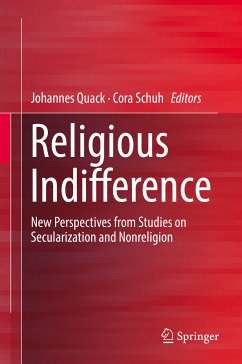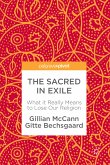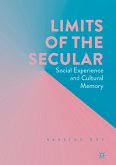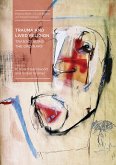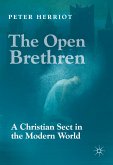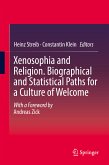Religious indifference is a central category for understanding contemporary societies, and a controversial one. For some scholars, a growing religious indifference indicates a dramatic decline in religiosity and epitomizes the endpoint of secularization processes. Others view it as an indicator of moral apathy and philosophical nihilism, whilst yet others see it as paving the way for new forms of political tolerance and solidarity.
This volume describes and analyses the symbolic power of religious indifference and the conceptual contestations surrounding it. Detailed case studies cover anthropological and qualitative data from the UK, Germany, Estonia, the USA, Canada, and India analyse large quantitative data sets, and provide philosophical-literary inquiries into the phenomenon. They highlight how, for different actors and agendas, religious indifference can constitute an objective or a challenge. Pursuing a relational approach to non-religion, the book conceptualizes religious indifference in its interrelatedness with religion as well as more avowed forms of non-religion.
Dieser Download kann aus rechtlichen Gründen nur mit Rechnungsadresse in A, B, BG, CY, CZ, D, DK, EW, E, FIN, F, GR, HR, H, IRL, I, LT, L, LR, M, NL, PL, P, R, S, SLO, SK ausgeliefert werden.
"This book provides rigorous, path-breaking analyses of secularity, non-religion, secularization, irreligion, and most importantly, social identities, positions, and postures that are neither anti-religious nor pro-religious, but hovering in a realm characterized by detachment, disengagement, irrelevance, inconsequence, unimportance, and insignificance. ... Religious Indifference is a path-breaking contribution to the study of secularism and nonreligion, no doubt." (Phil Zuckerman, Reading Religion, readingreligion.org, September, 2017)

